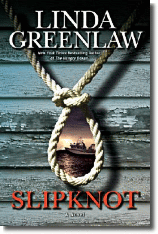 Jill: I love the line in the introduction that "a blend of narcissism and curiosity" may be the most well-suited kind of personality for the familiar essay.
Jill: I love the line in the introduction that "a blend of narcissism and curiosity" may be the most well-suited kind of personality for the familiar essay.
Fadiman: The narcissism allows me to write the parts of the essay that are about myself, and the curiosity allows me to write the parts of the essay that are about the actual subject. I get tired of writing just about myself. I don't think that I'm interesting enough. I don't think that my life has been interesting enough. I don't think that I would wish to read a book that was only about me. And I certainly wouldn't want to write a book which was only about me, which would take a hell of a lot longer than reading that book. But if I can also make use of my curiosity, then I can write or think about my own life for awhile, and then just set it aside, and take up a book, and read about the history of coffee, or ice cream, or moving, or mail, or being a night owl, and learn about other people's intersections with whatever that topic is. Then my curiosity is satisfied, and I can go back to being a narcissist again.
Jill: It's the best of both worlds. In terms of research, then, these were all subjects that you already were interested in reading more about?
Fadiman: All but one, I would say. The one exception is a piece about flags. It's called "A Piece of Cotton," which is a phrase used about a flag that I explain in the long historical section of the middle of the piece. I had never been particularly interested in the American flag, and knew absolutely nothing about it, except that it was sewn by Betsy Ross, which doesn't turn out to be quite as true as we think. The whole Betsy Ross story is one of a number of flag myths that I found out were actually myths.
I started thinking about flags after 9/11. We'd just moved into an old farmhouse in western Massachusetts, and we inherited a flagpole and an old flag. We'd never flown a flag before, but after 9/11, we flew it at half-staff. I started being curious about how the connotations of the flag had changed over time, and I thought that this was something I'd really like to read about. If it hadn't been for 9/11, and if it hadn't been for the accident of our having that flag and flagpole, that's not a subject that I ever would have thought about writing about. But it was consoling for me, to be working on that shortly after 9/11. It gave me a focus in those early jittery and scattered days.
Everything else in the book is about something I've been interested in for a long time, so I was particularly appreciative to have the excuse to learn more about it, and in many cases, to read or reread books that were already on my shelves, and to mark up my books. I always buy them used, so sometimes they already have other people's markings on them. When I was getting ready to write the essay on Coleridge and Charles Lamb, it just was with a feeling of glee, the way another person might feel before starting a meal that consisted only of his favorite foods, one after another. I would think, I get to spend two weeks with nothing but reading by and about Charles Lamb! What could be better?
And then, you really feel pleased at the end, because if it's a subject you're already interested in and know something about, you're so much more expert two weeks later than you are at the beginning. It's like seeing an acquaintance turn into a friend, and seeing that acquaintance turn into a friend after an intense period. It's like being stuck in an elevator for three days, or going on a camping trip, or having that kind of all-night conversation that we used to have in college and that we don't have time for now.
But I can have an all-night conversation with Coleridge or Charles Lamb if I want; I can stay up all night with those guys and do nothing but think about them. So I feel that the relationship is much more intense and intimate after the period of research. I love that period. I never think of it as, Oh, God, now I have to get out my books and take notes. I cannot wait; I look at my calendar and I know that that's coming up, and I can start researching an essay. I can't wait for that period. I hate starting to write it, but I love starting to research it.
.




































